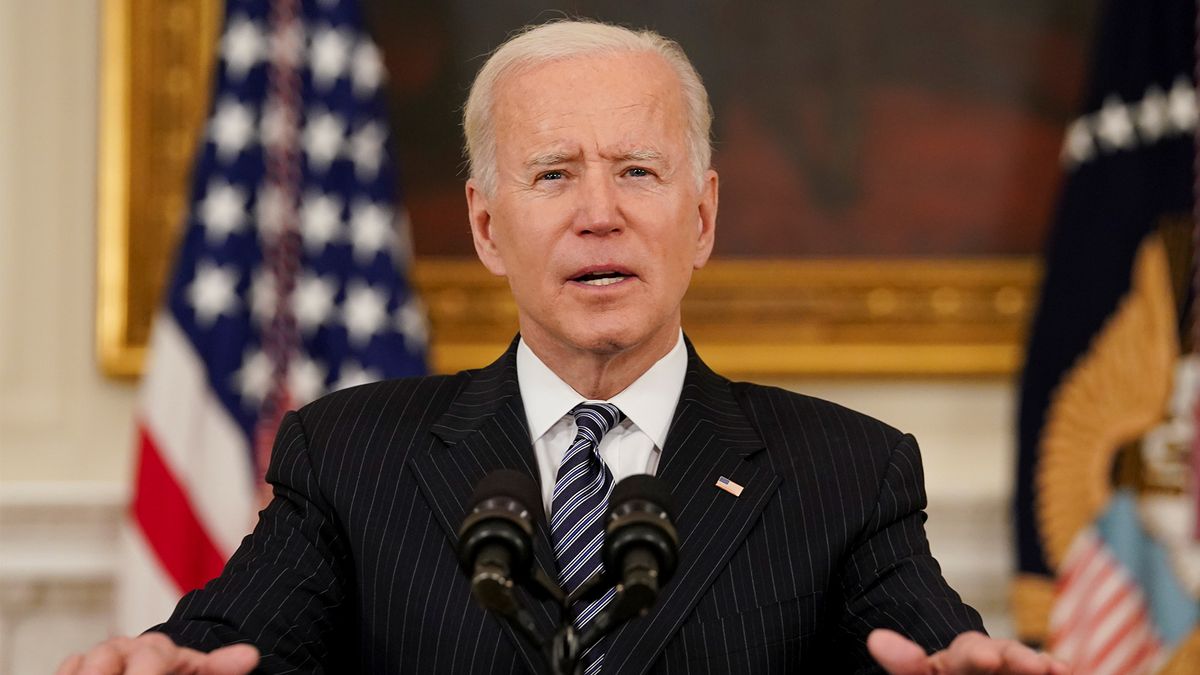Will Biden’s tax plan work?

A few minutes every morning is all you need.
Stay up to date on the world's Headlines and Human Stories. It's fun, it's factual, it's fluff-free.
Along with the infrastructure plan, the Biden administration also released their plans to pay for it: an increase in corporate tax rates and a clampdown on tax-dodging, focusing on removing tax evading corporations and wealthy individuals.
Last week, President Joe Biden announced a US$3 trillion infrastructure plan designed to rebuild American roads and bridges and bring financial equity to all Americans. The price tag, though, gives many on Capitol Hill pause, especially the deficit hawks in the GOP.
Along with the infrastructure plan, the Biden administration also released their plans to pay for it: an increase in corporate tax rates and a clampdown on tax-dodging, focusing on removing tax evading corporations and wealthy individuals. His plan, however, is receiving backlash from members of both parties and big business groups, but Biden believes he can get it through.
Raising taxes
The first part of Biden’s plan is to raise the corporate tax rate from 21% up to 28%. Before former-President Donald Trump lowered the tax rate in 2017, it was at 35%.
Biden’s plan has received criticism from all sides. The United States Chamber of Commerce, the largest business group in the US, called the plan “dangerously misguided.” In a statement, the group said, “We strongly oppose the general tax increases proposed by the administration which will slow the economic recovery and make the U.S. less competitive globally – the exact opposite of the goals of the infrastructure plan."
Jobs moving abroad is a main concern among economists and a strong GOP talking-point, one that Biden isn’t worried about. When asked if the tax rate rise would drive corporations to other countries, Biden told reporters, “There’s no evidence of that.”
Major tax overhaul
The infrastructure plan would not be fully covered with a simple tax increase, especially as reports from the Institute on Taxation and Economic Policy said that at least 55 of the US’ largest corporations paid no federal income on US$40 billion last year. Additionally, the Tax Justice Network released a study at the end of 2020 saying tax loopholes and cheats lose governments worldwide US$427 billion a year, with the US losing the most at US$90 billion.
Additionally, the Internal Revenue System (IRS), in charge of auditing wealthy taxpayers and corporate finances, has had its budget slashed over the last decade. In May 2020, the Treasury Department found that due to a lack of resources, the IRS was unable to audit 879,415 “high-income nonfilers” owing nearly US$46 billion in taxes.
The Biden administration seeks to fix this in multiple ways. First, Democrats plan to push the IRS to be tougher on tax-dodgers through IRS audits. Secondly, Treasury Secretary Janet Yellen has announced a plan to implement a global corporate tax in order to discourage companies from moving abroad. Yellen explained the Biden administration would work with other advanced economies to set a minimum.
“It is important to work with other countries to end the pressures of tax competition and corporate tax base erosion,” she told the Chicago council on Global Affairs.
This minimum tax can preemptively address the issue of companies moving abroad by giving them less incentive to do so. If the huge tax breaks aren’t there, then the companies won’t move. It also solidifies the US’ involvement in the Organization for Economic Cooperation and Development, an agreement two years in the making between 37 countries.
The Biden administration also hopes to set up a minimum US tax on overseas corporate income, as well as making it more difficult for companies to shift their earnings to offshore accounts. Additionally, the administration would punish other countries without a minimum corporate tax by taxing their subsidiaries in the US.
Getting the votes to pass
Convincing Congress to enact his payment plan is no easy feat, as he needs the support of all Democrats in the Senate for it to pass. Biden has expressed his desire to work with Republicans on many occasions, but like the coronavirus relief package which passed without a single Republican vote, history seems to repeat itself.
Senate Minority Leader Mitch McConnell has already expressed his disapproval, saying, “I don’t think there’s going to be any enthusiasm on our side for a tax increase.” That leaves it up to Democrats to pass the bill.
West Virginia Democratic Senator Joe Manchin has also expressed his desire to work on bipartisan legislation over the infrastructure bill. He also believes the tax increase should be slightly lower, at 25%.
“If I don’t vote to get on it, it’s not going anywhere,” Manchin said in a radio interview. “So we’re going to have some leverage here.”
Despite the pushback from those on Capitol Hill, Biden’s plan is to win the public opinion battle, even among Republican voters.
A Morning Consult/Politico poll found “voters broadly support this expanded notion of infrastructure, with measures like increasing housing options for low-income families garnering the support of 70 percent of registered voters, including 87 percent of Democrats and 53 percent of Republicans.”
Have a tip or story? Get in touch with our reporters at tips@themilsource.com




Comments ()